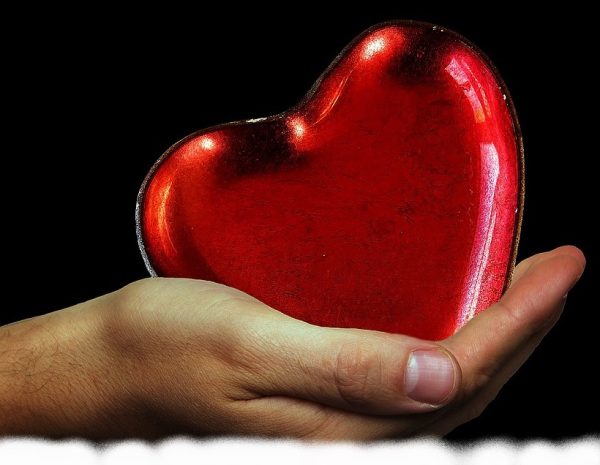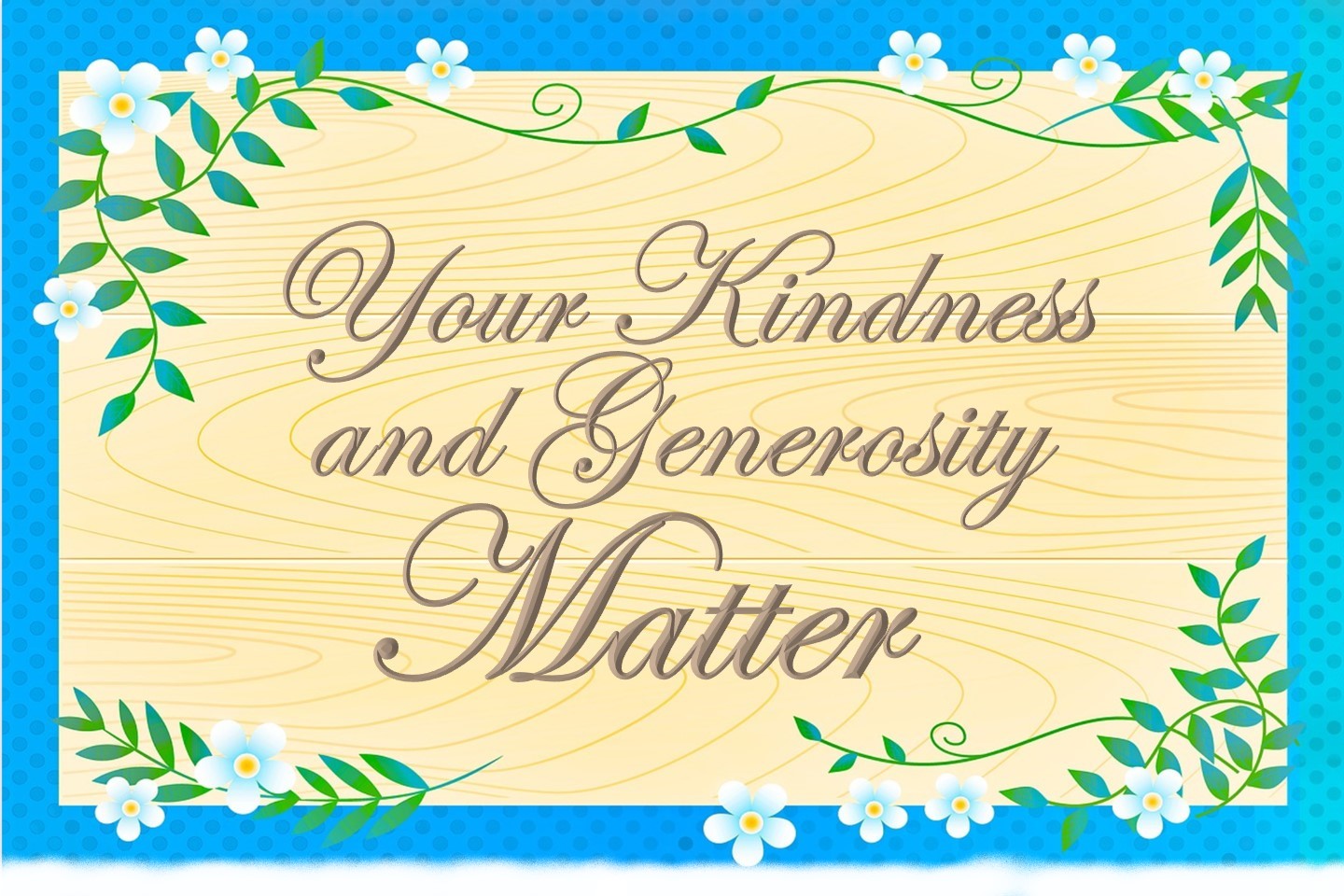Generosity is Good All Around

26 December 2019 | Theme: Generosity | 6-Minute Read | Listen
What Black Friday is to retailers, end-of-year giving is to nonprofits.
Retailers typically begin earning a profit for the first time all year—become “in the black”—during the Thanksgiving weekend. Similarly, nonprofits count on end-of-year donors to help them keep their doors open so that they can keep doing the good works they do all year long.
So it’s important to open our hearts and our wallets and give to the charities that give so much back into our communities, especially in this season. It turns out that doing so is good, not only for the receivers, but for the donors as well.
So far this month, I’ve written about what generosity is and isn’t, what it means to be generous vs. self-sacrificing, and how pathological giving (toxic generosity) can be detrimental. Today, I want to focus on the benefits of generosity.
When we give of ourselves and our resources freely, from a place of love and compassion for others, we practice Letting Go (my theme, by the way, in March). We give up thinking, “This is mine; I’ve earned it; I need to keep it.” We relax our grasping, open our hands, and release so that others may benefit. We allow the clinging thoughts to dissolve, and as Sharon Salzberg writes, “It is in that choice to dissolve that we carry ourselves to a state of greater freedom.”
When we hold onto our resources, we do so through a belief in scarcity, and that belief makes us shrink. We contract around “mine” and “yours,” and the contracting makes us hard and small. Giving, however, loosens our hands and opens our hearts, and we grow exponentially.
If you’ve experienced the “warm glow” of giving to others, you know that it feels good to share and to give. Now, there is scientific evidence that generosity activates “feel-good” parts of the brain. A group of scientists at the University of Zurich studying Generosity reported their findings in Nature Communications, stating, in part, “Generous decisions engage the temporo-parietal junction (TPJ) in the experimental more than in the control group and differentially modulate the connectivity between TPJ and ventral striatum. Importantly, striatal activity during generous decisions is directly related to changes in happiness. These results demonstrate that top–down control of striatal activity plays a fundamental role in linking commitment-induced generosity with happiness.” (And if you think that was fun, do go ahead and read the entire report to get all those science-y equations, charts, and graphs.)
In layman’s terms: when we give to others, it lights up the “feel good” parts of our brains. Participants in the study reported feeling happier when they gave of their time, talents, and treasure. Helping others contributes to our own feeling of well-being. Prof. Phillipe Tobler, one of the researchers, explained that even small acts of generosity can have a positive impact: “You don’t need to become a self-sacrificing martyr to feel happier. Just being a little more generous will suffice.”
Sociologists Christian Smith and Hilary Davidson point to an undeniable connection between generosity and happiness. Their surveys of 2,000 participants over more than 5 years revealed that people who volunteered more were the happiest; those who gave 10% of their income had the lowest rates of depression; and those who were emotionally generous in relationships had the best overall health.
Lisa Firestone reports, “Not only does generosity reduce stress, support one’s physical health, enhance one’s sense of purpose, and naturally fight depression, it is also shown to increase one’s lifespan.”
But does knowing that we benefit from our acts of generosity somehow sully them? I don’t think so, and Sharon Salzberg agrees: “I think it’s OK to practice generosity knowing that it is beneficial to ourselves as well as to the recipient. It’s not selfishness, it’s an honest recognition that love and generosity creates an exchange of positive energy, and fuels further love and generosity.”
Indeed, there is a ripple effect to generosity. When you act generously, not expecting a certain reaction in return, you feel good, and that makes you want to be generous again. But others who witness the act are inspired to be more generous, too.
Generosity reminds us that we are connected to others, and practicing it strengthens our ties. Firestone writes, “According to Jason Marsh and Jill Suttie of the Greater Good Science Center, ‘When we give to others, we don’t only make them feel closer to us; we also feel closer to them.’” Giving to others is a recognition that we are all connected. Perhaps this is why the Buddha would begin his teaching of lay people with a teaching on Generosity, “because it can bring so much joy and self-respect” (Salzberg).
As the year draws to a close, I invite you, Dear Reader, to find ways to give generously. It doesn’t have to be a monetary gift, though there are many agencies and organizations that need monetary gifts. But it can also be an encouraging smile, an act of kindness, or your time and full attention. Then, make Generosity one of your New Year’s resolutions—to give of yourself throughout the year and not just in December. That will help keep the feel-good juices flowing.
Until next time,

Resources:
Cohut, Maria, PhD. “Generosity Makes You Happier.” Medical News Today, 16 July 2017. https://www.medicalnewstoday.com/articles/318406.php#1
Firestone, Lisa. “The Benefits of Generosity.” Huffpost, 13 June 2014. https://www.huffpost.com/entry/the-benefits-of-generosit_b_5448218
Park, S., Kahnt, T., Dogan, A. et al. “A neural link between generosity and happiness.” Nature Communications 8, 15964 (2017). https://www.nature.com/articles/ncomms15964
Salzberg, Sharon. “The Real Power of Generosity.” On Being, 19 April 2015. https://onbeing.org/blog/the-real-power-of-generosity/
If you enjoyed this article,
please share on social media!
NEXT ARTICLE

Tales of Generosity
31 December 2019 | Theme: Generosity | 9-Minute Read
For this, the last article of our month of Generosity—the last article of the year and of the decade—I asked my readers to share their stories of Generosity. When, I asked them, have you experienced Generosity? What did the other person do and how did you feel? Their stories were heart-warming . . .